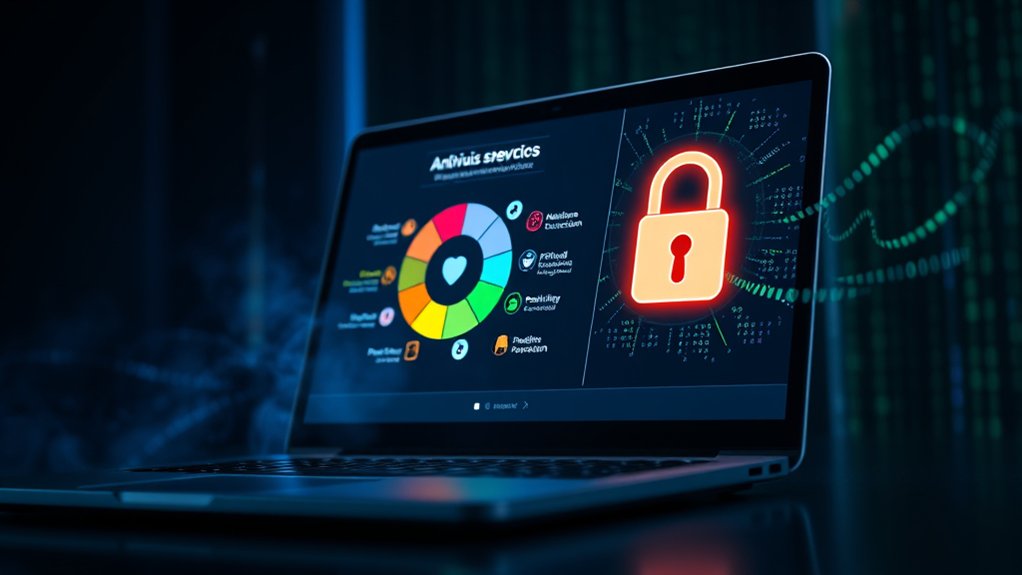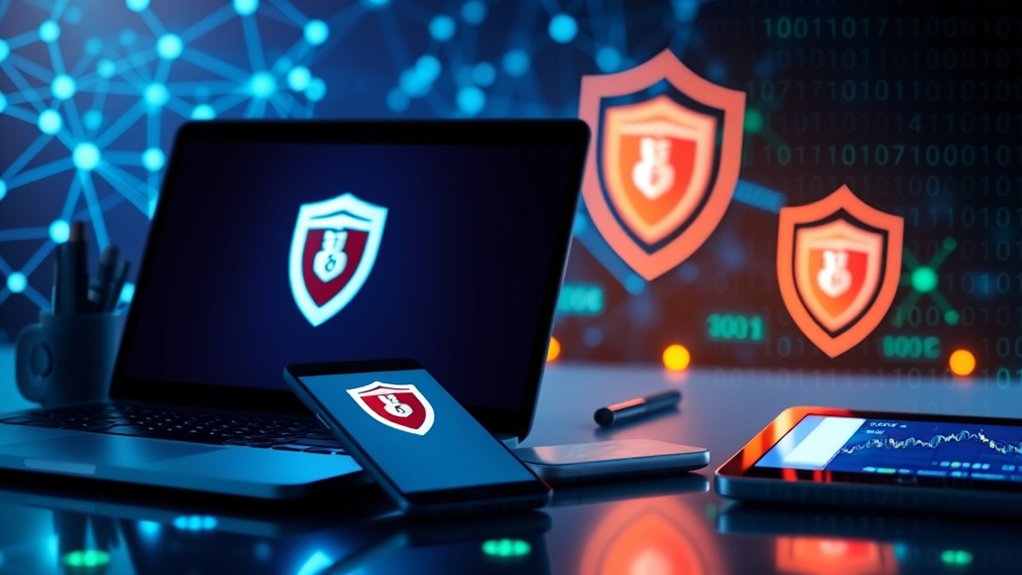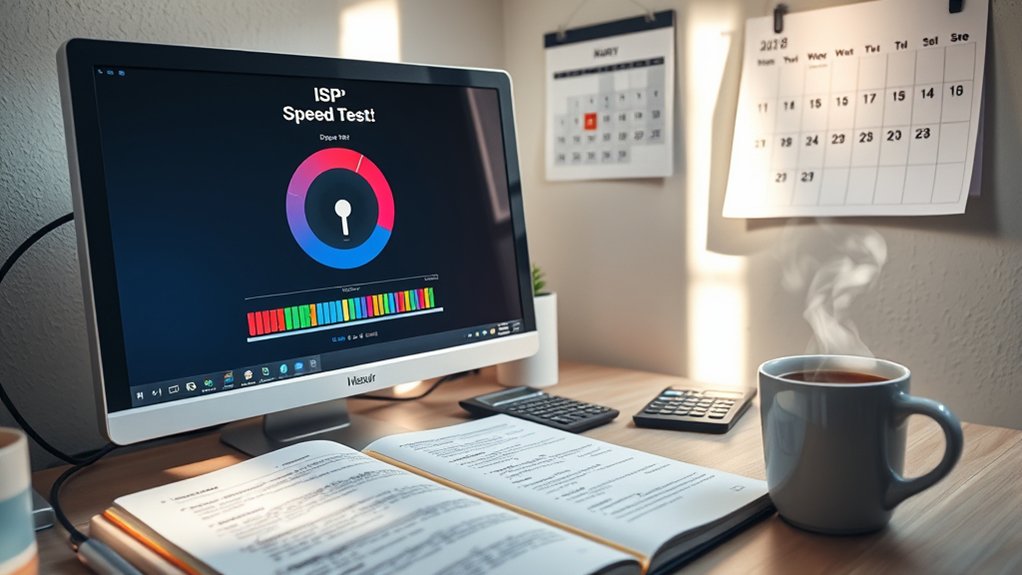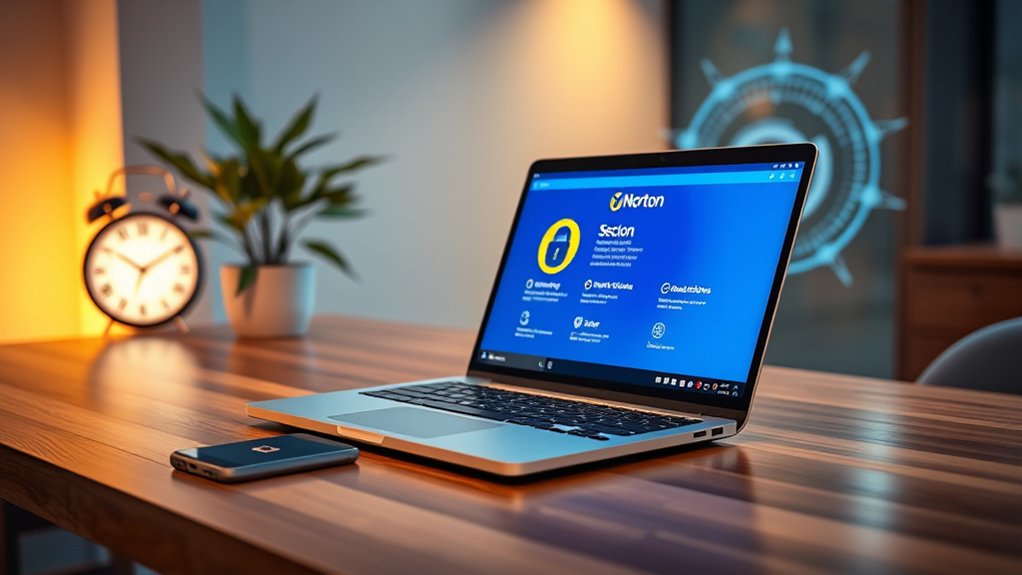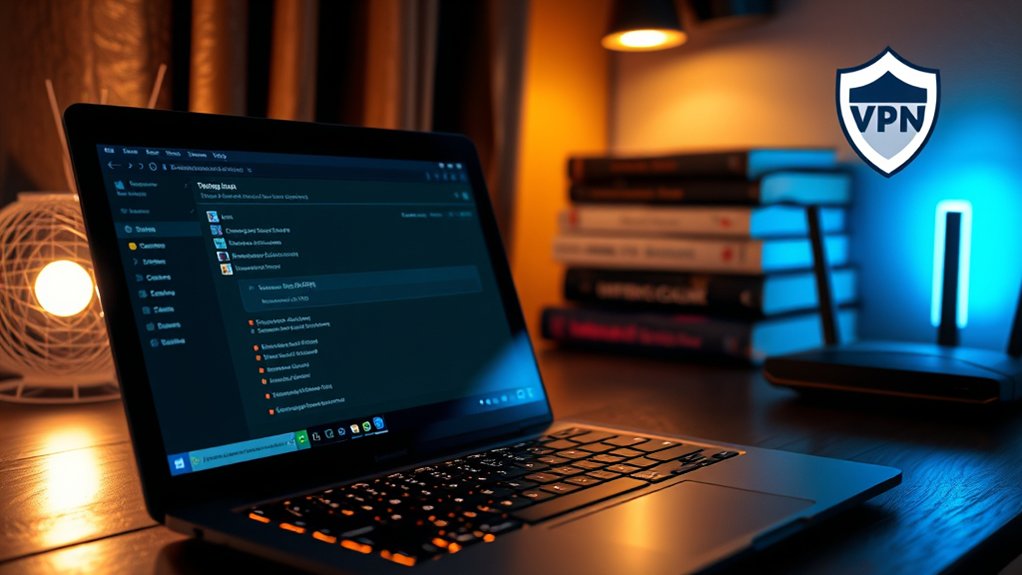Selecting the best antivirus software involves evaluating individual needs, device types, and budget constraints. Leading options such as Bitdefender Total Security, Norton 360, and Kaspersky Premium exhibit high protection ratings and minimal system impact. Independent testing frequently awards these programs for their usability and extensive features. For budget considerations, free versions provide basic protection but often lack advanced tools. Understanding specific requirements can guide users towards ideal choices that best suit their circumstances, with further exploration revealing additional insights.
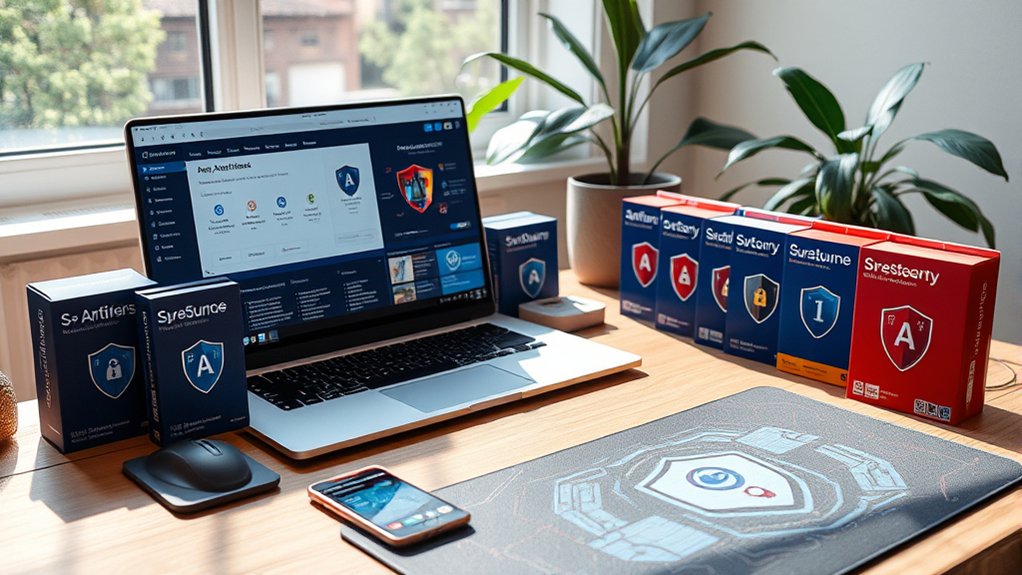
In an era where digital threats proliferate, the importance of strong antivirus software cannot be overstated. The selection of the most effective antivirus solution depends on the user’s specific needs, preferences, and the devices in use.
Leading antivirus programs such as Bitdefender Total Security 27.0 and Norton 360 Antivirus have distinguished themselves through rigorous testing, achieving high-performance ratings in AV-TEST for protection, usability, and performance. Notably, the award-winning antivirus software have consistently received high ratings, ensuring users can trust their security measures.
Bitdefender Total Security 27.0 stands out for its perfect scores, offering extensive protection without compromising system performance. Norton 360 adds value through additional features, including a reliable VPN and strong password management capabilities, making it an excellent choice for those seeking improved online security. Furthermore, a reliable antivirus should offer real-time protection against a variety of cyberthreats to ensure comprehensive defense and help safeguard personal information while browsing.
For users interested in malware detection and system optimization, TotalAV has garnered attention for its effective capabilities in these areas. AVG Internet Security offers exceptional malware protection with notable features like a customizable firewall, catering to users who prioritize versatility in their security measures.
Likewise, Kaspersky Premium has achieved acclaim for its award-winning protection and performance, establishing itself as a trustworthy option for users across various platforms.
Key features to evaluate when assessing antivirus software include automatic updates, a user-friendly interface, reliable customer support, and cross-platform protection. These functionalities guarantee that users can maintain real-time protection and navigate their software proficiently.
Performance metrics, including high detection rates and minimal system impact, play an essential role in selecting the appropriate product. Moreover, specific antivirus requirements vary greatly by user category.
Gamers may prefer antivirus solutions that minimize system resource usage during gameplay, while businesses may necessitate advanced features such as network protection and data encryption. Budget-conscious consumers might opt for free or low-cost versions that still deliver fundamental protection.
Frequently Asked Questions
How Often Should I Update My Antivirus Software?
Antivirus software should be updated regularly to guarantee ideal security. Experts recommend performing updates at least once a day, with many antivirus programs offering multiple updates daily.
Frequent updates incorporate new virus definitions and security patches, adapting to the evolving cyber threat environment. Automated updates are urged for consistent protection, whereas users engaged in high-risk activities may require even more frequent updates to combat advanced threats effectively.
Regular checks of update status are advisable.
Can Antivirus Software Slow Down My Computer?
Antivirus software can certainly slow down computers, primarily because of its resource usage. According to experts, active scans, particularly full system scans, may lead to noticeable performance drops.
Systems with lower specifications are particularly susceptible. Usage of cloud-based antivirus solutions has been noted to minimize local resource consumption.
Customization options, such as scheduling scans during idle times, are recommended to alleviate potential slowdowns whilst maintaining adequate protection.
Careful selection of antivirus software will contribute to improved performance.
Does Antivirus Software Protect Against All Malware?
Antivirus software does not provide thorough protection against all malware.
Research indicates that traditional antivirus solutions mainly rely on signature-based detection, rendering them less effective against new or unknown threats. According to cybersecurity experts, continuous updates are crucial; without them, an antivirus program will struggle against evolving malware.
Additional security practices, such as safe browsing habits and regular software updates, are vital for a strong defense against various cyber threats.
Is Free Antivirus Software Effective?
Free antivirus software is typically effective for basic protection against common malware and viruses.
Programs like Bitdefender achieve a 100% detection rate for zero-day threats, garnering positive user reviews.
Nonetheless, limitations exist; advanced features, such as ransomware protection, are often absent, leaving vulnerabilities against sophisticated attacks.
Independent tests, conducted by AV-TEST, highlight these strengths and weaknesses, suggesting that although adequate, free antivirus may not suffice for users with more complex security needs.
How Can I Tell if My Antivirus Is Working?
To determine the effectiveness of antivirus software, one should monitor several key indicators.
These include consistent system performance without significant slowdowns, effective malware detection during regular scans, and timely updates of virus definitions.
Furthermore, users should verify the regular execution of scheduled scans and check for minimal false positives in legitimate files.
Regularly utilizing an EICAR test can likewise validate the operational integrity of the antivirus program, ensuring it responds appropriately to simulated threats.
